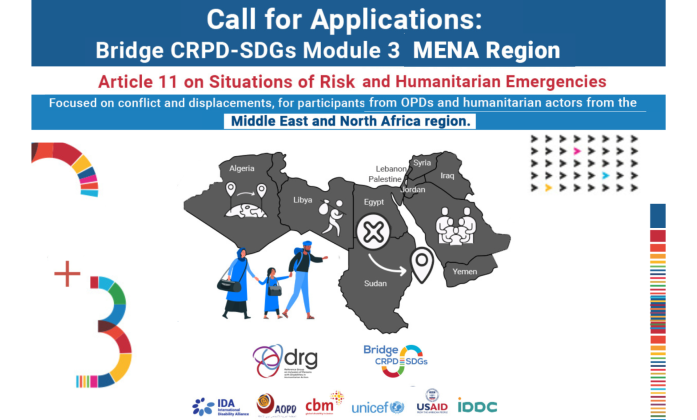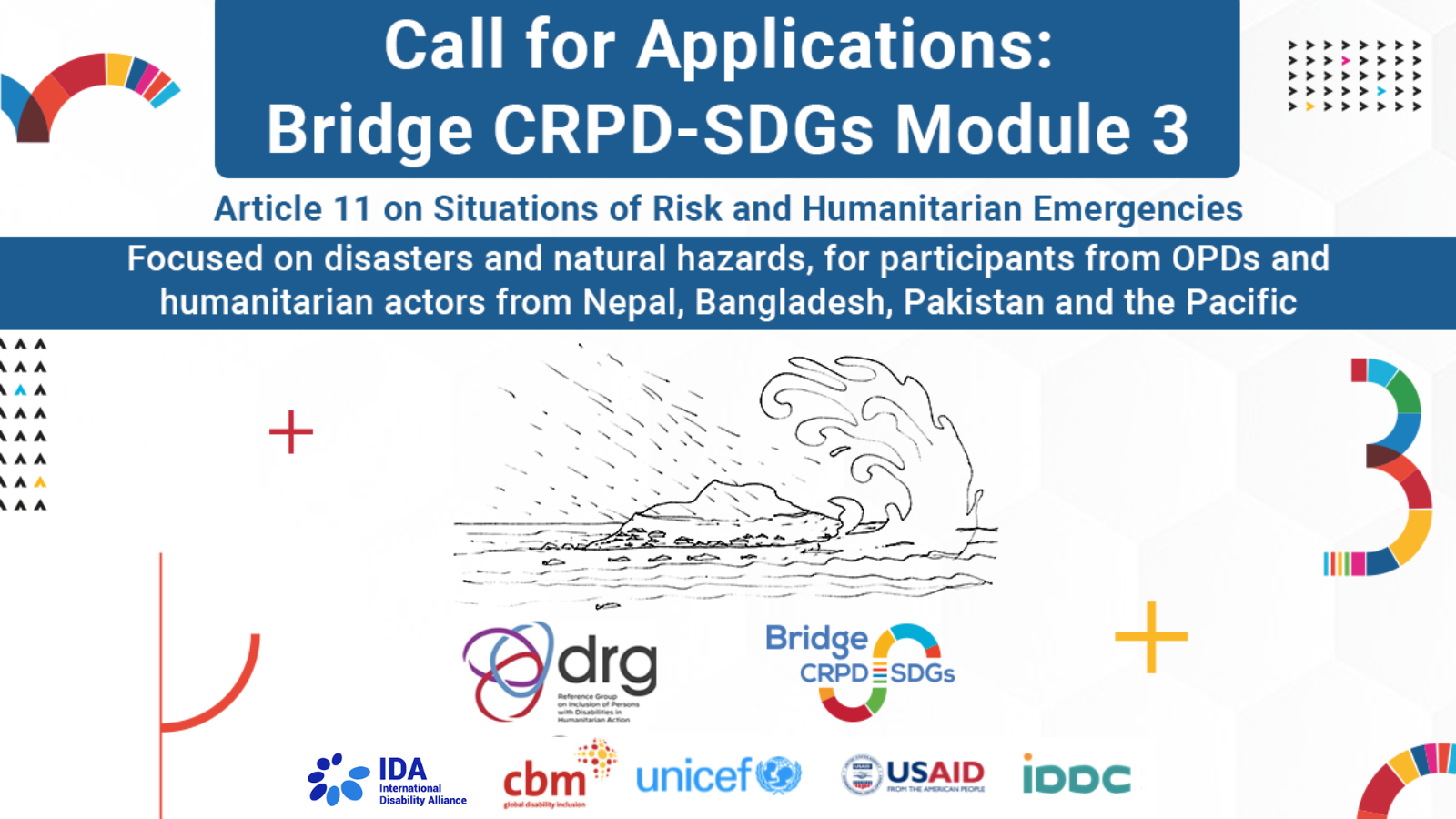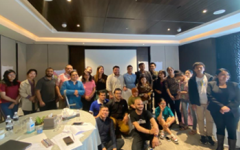>> Update from Day 1 (28 September)
>> Update from Days 2-4 (29-30 September & 1 October)
>> Update from Days 6-8 (3-5 October)
>> BRIDGE Training of Trainers Module B, Brighton, 28 September to 5 October 2017
The 5th day was opened with a general conversation on basics of Social Protection with discussions on different old age pension, income security schemes and health coverage, as strategies to increase economic and social resilience of persons with disabilities. Following this session, participants prepared their ‘advocacy pitch’, as preparation of the afternoon’s session on links between the CRPD and SDGs.
Following that, participants had an in-depth session on Social Protection with Stephen Kidd, from Development Pathways, who shared experiences from across the world on social protection. He highlighted the importance of disability specific schemes to inclusivity. During the same session, Hannah Kuper, from International Center for Evidence in Disability (LSHTM), shared experiences on disability inclusive social protection in Nepal and Vietnam. Hannah highlighted the importance of data not only related to the needs of people and the gaps in public policies, but that it is about changes in society.
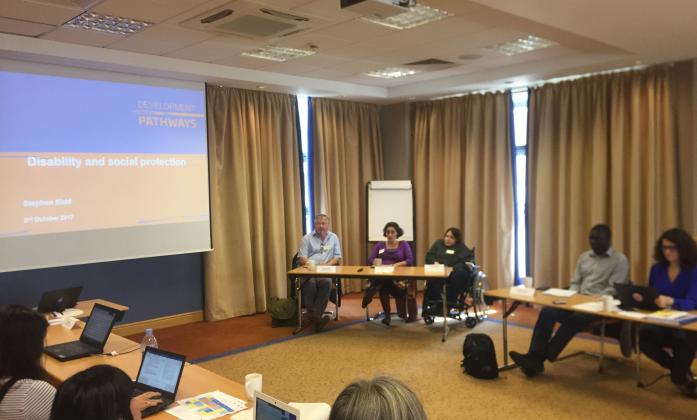
Following her presentation, Ola Abu Alghaib from Leonard Cheshire presented a case study from Palestine, discussing the experiences of persons with disabilities in the region, challenges related to fragilised situation and the importance of autonomy and choice related to social security schemes.
Talking about the BRIDGE CRPD-SDG training, Ola noted: "The training is powerful as it brings together different disability consistencies from different countries in one space, and encourages the trainees to share ideas. The training ensures broader understanding of the interlinkages between the broader development agenda and the disability specific issues. Through the sharing of ideas, the disability movement becomes aware of the risks at both sides, therefore there is solid and practical use of the training to continue advocacy efforts at grassroots levels."
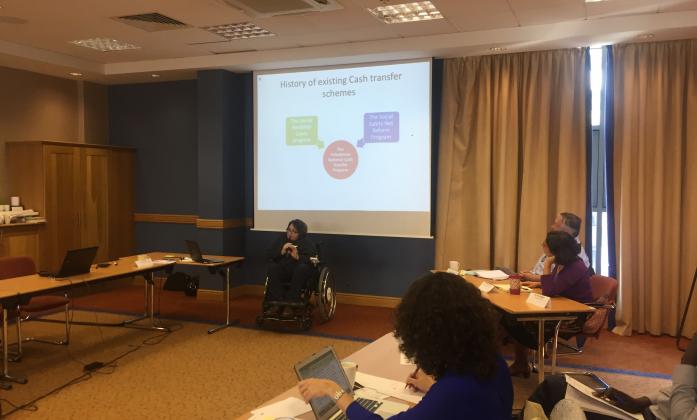
During the afternoon, the participants presented their ‘advocacy pitches’ to the group. Joining them during this session were Penny Innes of the UK Department for International Development, Dominic Haslam from Sightsavers, and Asayya Imaya from the Big Lottery Fund. The session was built on in-depth exchange between the visitors with participants. Each group of participants presented a particular goal from the SDGs and visitors fed back to each group in their capacities as grant-providers. After each pitch, the panel of three provided feedback to the group on the take-home message of the advocacy pitches, and the areas in which the pitches could be strengthened, in order to be more effective.
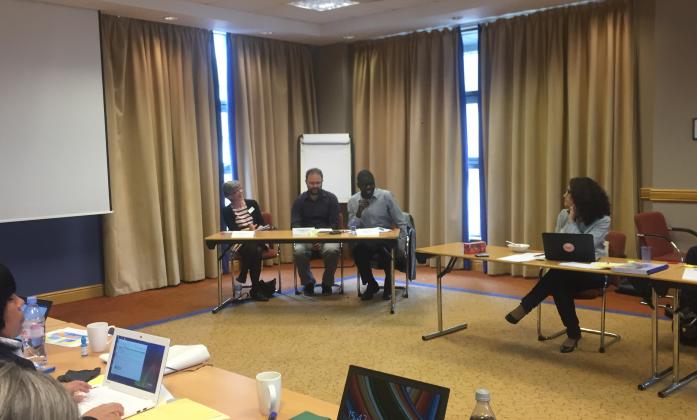
During the exchanges, key messages were that disability inclusion has been neglected in the development efforts; the impact of using the SDGs’ implementation in line with the CRPD, the needed strategies to meaningfully ‘leave no one behind’, and the importance to bring people to the lead, working on what matter for persons with disabilities. This session allowed the trainees to practice how to give succinct and powerful information in order to strengthen cooperation with policy-makers. Hannah Loryman from Sightsavers, and Steve Besford, from the Leprosy Mission followed the 5th day.
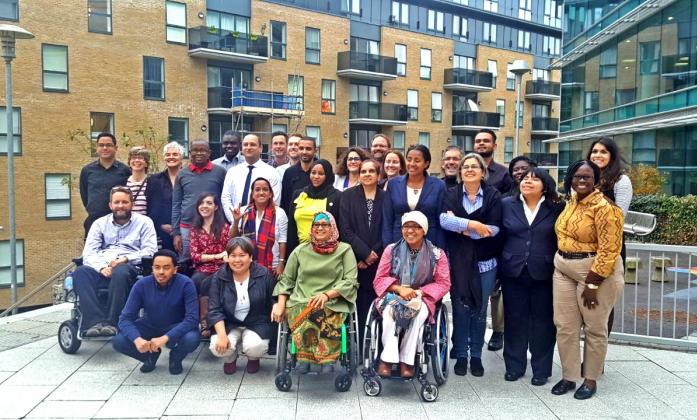
For more information and documents:
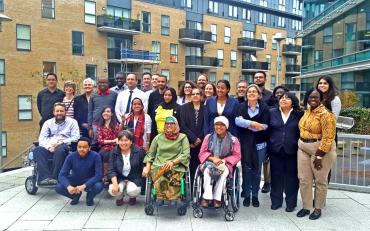
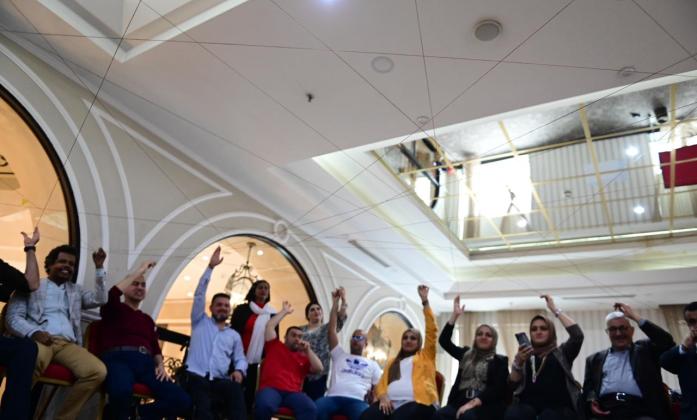 Bridge CRPD-SDGs is an intensive training programme that aims to support organisations of persons with disabilities (DPOs) and disability rights advocates to develop an
Bridge CRPD-SDGs is an intensive training programme that aims to support organisations of persons with disabilities (DPOs) and disability rights advocates to develop an